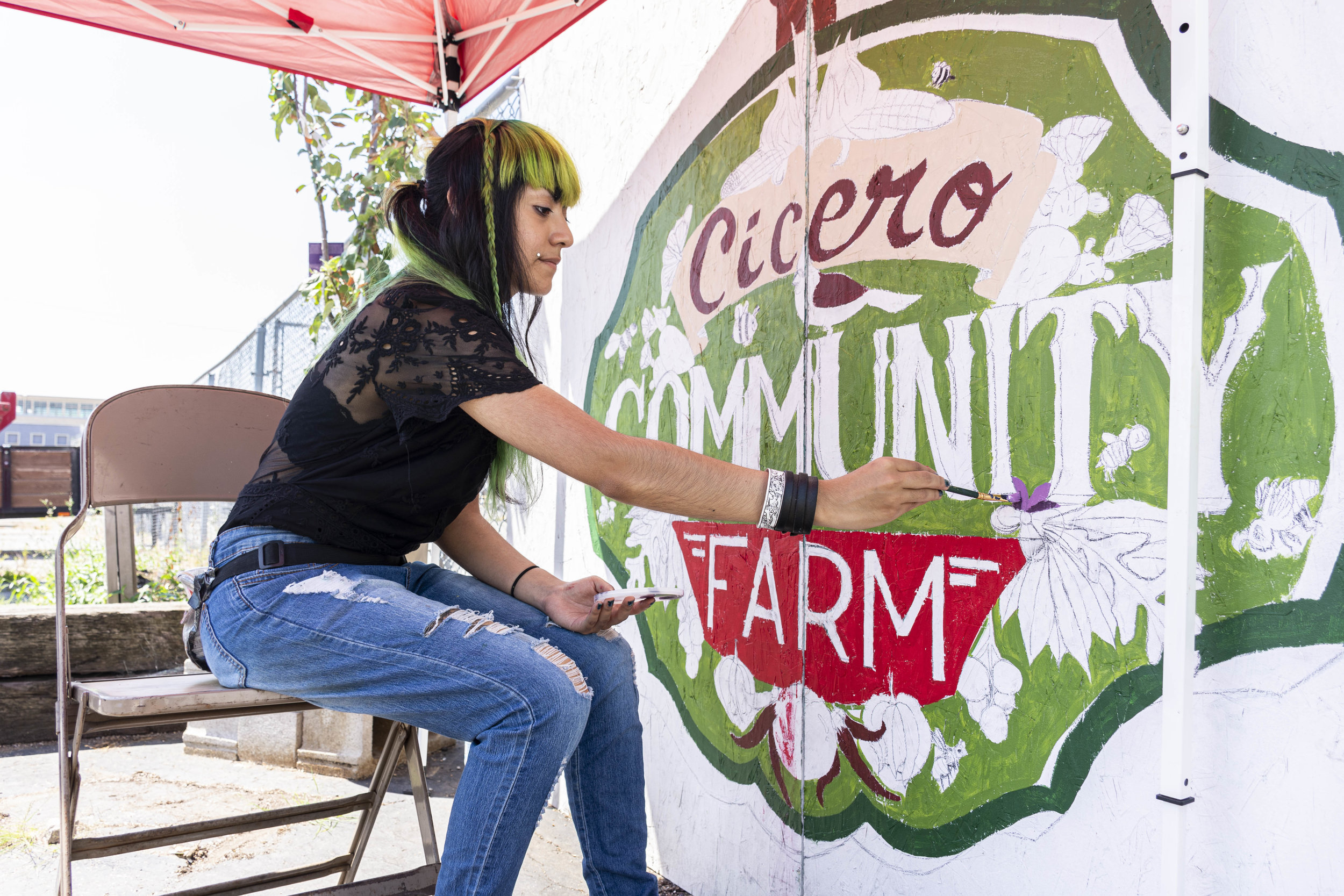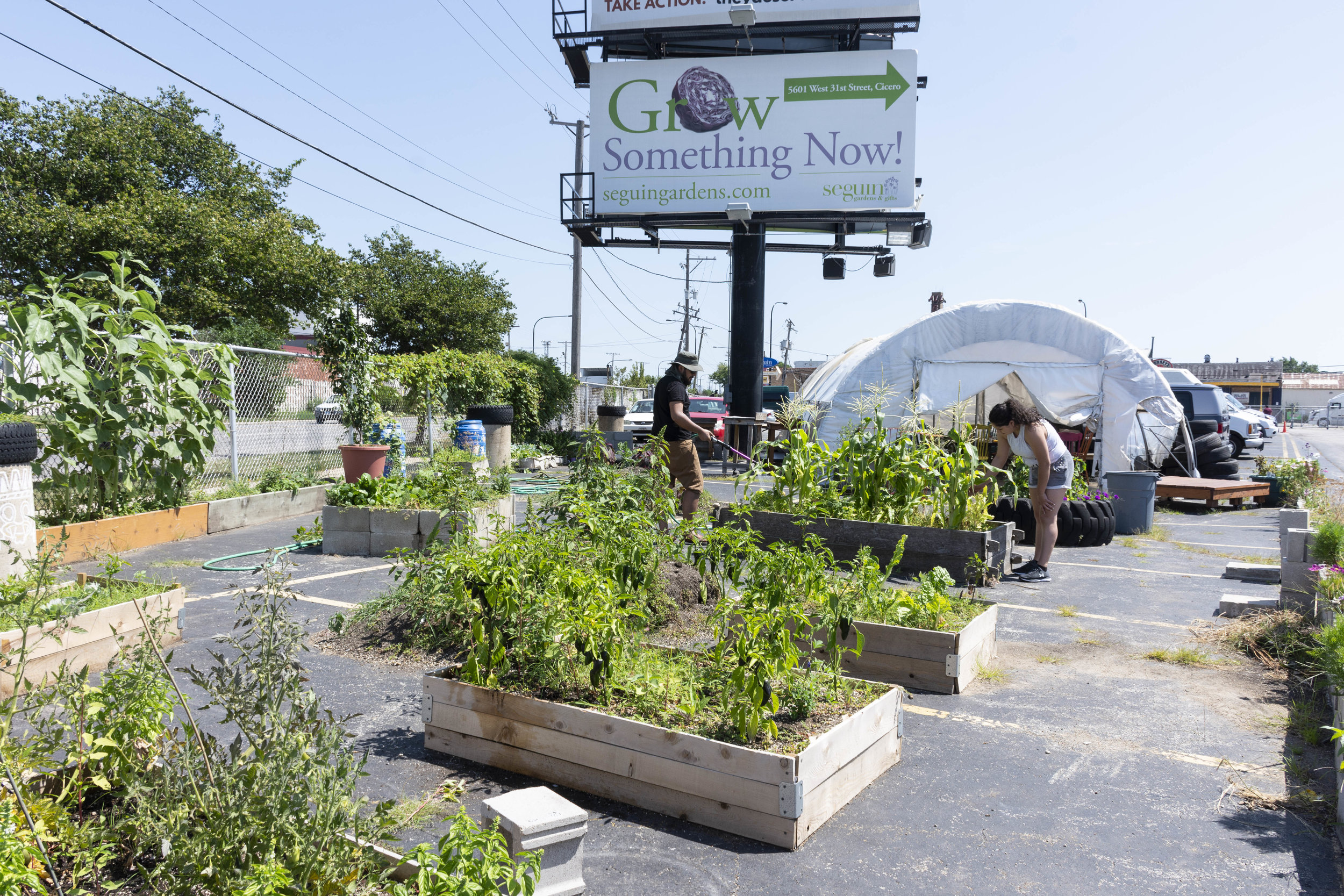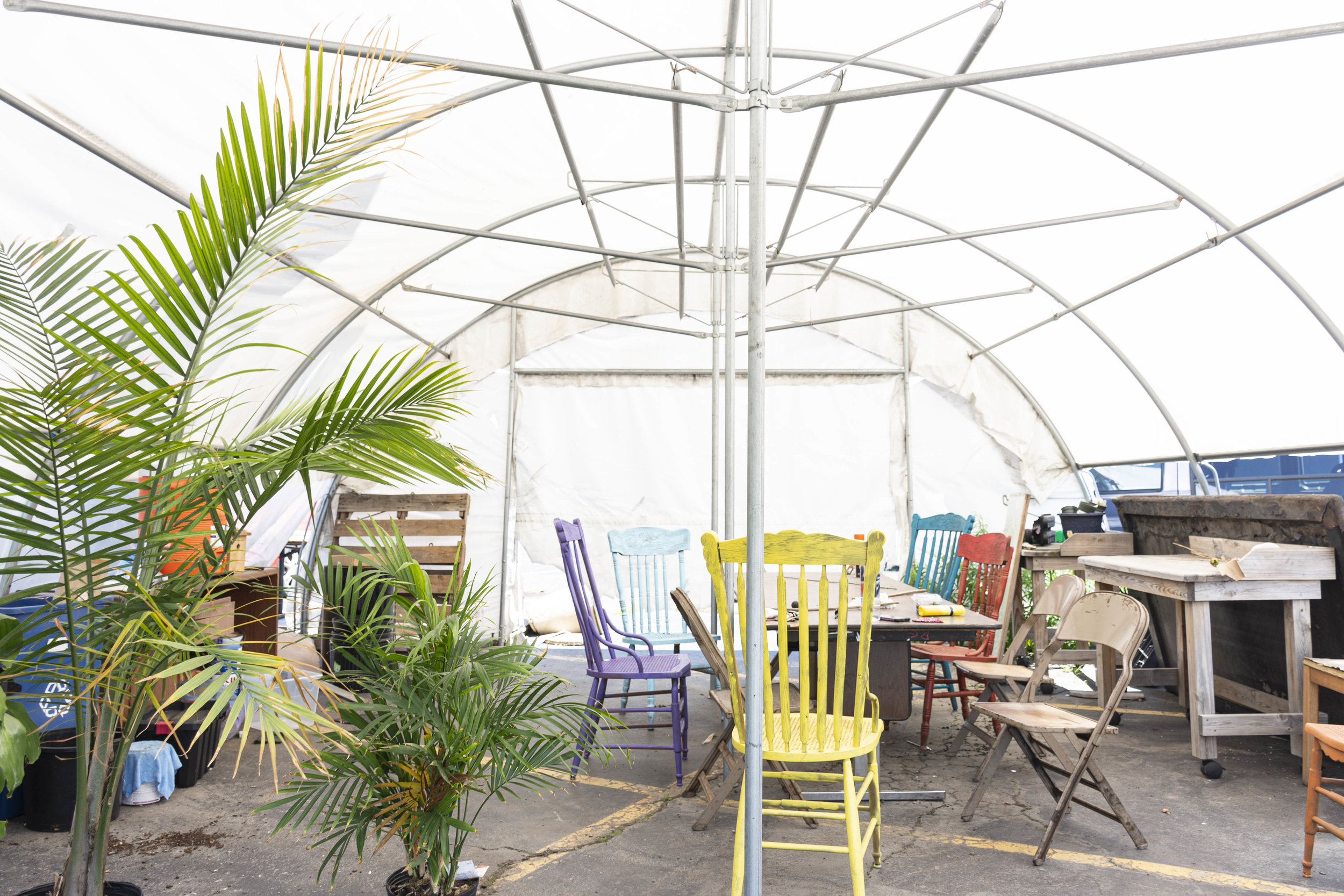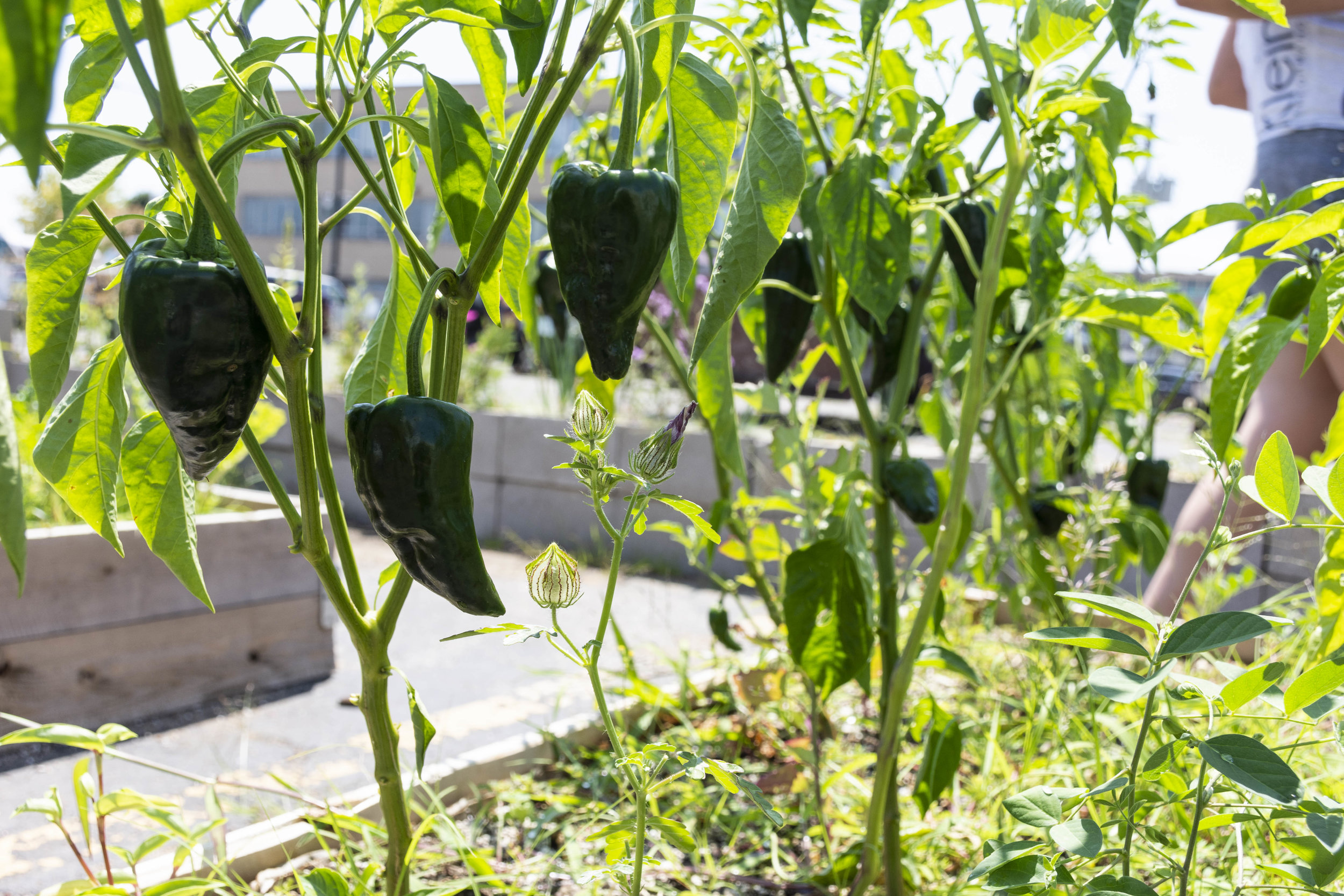Youth Founded Community Farm Brings Nature to Cicero Residents
Photos by April Alonso
By Estela Santillan, guest writer
Behind the Steak’n Egger on Ogden and Central Avenues is Cicero’s first community-run urban agricultural site, the Cicero Community Farm. There, native plants like chokeberries and elderberries, herbs and peppers, grow inside old tires and garden beds made of concrete blocks. The project, founders’ hope, will help address environmental and health concerns in Cicero and bring people closer to nature.
Cicero has long been a manufacturing and industrial center. These industries can cause damage to our ecosystem, our health, and contribute to a lack of access to green spaces.
"I live by Laramie where I'm surrounded by factories. For a long time there was a big plot of barren land there. They began building another factory on it instead of cultivating something useful for our environment. It’s just getting worse,” said Llatziri Rosales, one of the farm’s founders.
That is why Rosales joined Avigail Bailon, Natalia Carreño, and others, to found the Cicero Community Farm.
Seguin Garden, an agency that provides vocational training and employment for adults with developmental disabilities, donated a plot of land to be converted into an urban agricultural site.
The founders’ hoped the site would help produce vegetation and nutrition to enrich the community. They have since developed the donated parking lot space into the farm and green space it is today.
The first public event at the farm took place on April 27, 2019 in the Seguin Garden. Volunteers were introduced to the purpose of the community farm and its mission to build a natural home in Cicero.
This event was a success and was attended by twenty volunteers willing to carry out the purpose of the farm. They were all able to view the garden and educate themselves with hands-on learning.
Every Saturday morning since then, more and more people have contributed to the farm’s growth and many of the plants have begun to flourish.
It all began as a slow but gradual process: removing old tires, moving bricks, and recycling material. When it later came to planting, new members became more educated on how to plant and learned about the environment. The farm has now bloomed into a habitat with lush vegetation, and has also become a space to embody a cherished community with love and acceptance, an added gift.
This safe space is open to anyone who wants to share with one another around plant-based food and communication. It is starting to become a home for many, as it creates a safe haven for those who want to flourish within themselves and the ecosystem around them.
Aside from addressing environmental concerns, the farm provides space to address health concerns. Thirty-two percent of Cicero residents deal with mental health issues such as depression. The community farm provides an important opportunity for mindfulness and meditation for the sake of well-being. Access to natural areas is vital for mental health in urban areas.
Gretchen Daily, a professor in environmental science told Stanford News that staying in a peaceful environment for at least 90 minutes can create a profound growth in mental health and, “showed decreased activity in a region of the brain associated with a key factor in depression.”
The farm provides space for mental health awareness and positivity for internal and external growth.
Once it becomes more grounded and complete, the farm’s founders hope that it will expand into different areas of Cicero. Specifically in damaged and abandoned areas that are not currently being used and transform them into gardens.
“We hope to expand, not just physically, but also knowledgeably by helping the community understand and grow to the health benefits,” said Bailon. “People can join us on Saturdays from 10am-3pm to show solidarity for our environment in our community.”
Estela is a recent Morton East graduate and will be attending Lake Forest College in the fall. She is a founder and member of the Rizoma Collective & Cicero Community Farm.
Email us at info@ciceroindependiente.com for information on how you can contribute a story to Cicero Independiente.







